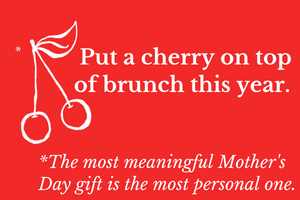Ninety-four years ago a fuzzy yellow bear was born, appearing in an issue of the satirical British Punch magazine and then a year later on Christmas Eve in the London Evening News. Now nearly a century later many are still reciting the words penned by A.A. Milne and later popularized by Disney. A new sequel was even released this past May in England to celebrate Pooh’s 90th anniversary this October and honor the Queen’s 90th birthday. I’m sure even Milne and Pooh’s illustrator, E.H. Shepard would be surprised by the bear’s longevity!
But to understand this longevity, a peek into its inception is important. It’s also a perfect example of why the old adage, write about what you know, is so effective in capturing the attention of your audience.
As probably many of you know, the Pooh character was inspired by Milne’s son Christopher Robin and his teddy bear named Edward. It was renamed “Winnie the Pooh” after a Canadian black bear named Winnie (after Winnipeg), which was used as a military mascot in World War I. “The pooh” came from a swan called “Pooh” though Shepard’s artwork was said to have been modeled after his own son’s teddy named Growler.
And adding to the allure of Winnie the Pooh is the fictional Hundred Acre Wood, a magical, borderline Utopian place that was derived from the Hundred Acre Wood in Ashdown Forest in East Sussex, South East England. Milne lived on the northern edge of the forest at Cotchford Farm and took his son walking there. The Hundred Acre Wood was a testament to living a simpler life, serving yet again for its readers as something with which they can identify no matter what year it is.
It’s safe to say that Pooh represents a hope that transcends generations—perhaps that’s why so many people do identify with him. Using simple language, Pooh teaches us to be positive, not take things so seriously and not take things personally.
If the pot of honey is empty, it’s probably just because you need to refill it, not because you’re strapped for money and nothing goes right in your life.
Milne liked to highlight the importance of dreams. They are what are outside our comfort zones no matter how big they are. Fear is what stops us from crossing that line. Pooh teaches us that you should cross that line. You should try to fit in a hole even though you might get stuck. What’s the worst that could happen? You could have to wait a little while to get the honey? Or ask for some help from a friend? Not so bad, right?
We learn from Pooh that there’s no need to dwell in the past or fret over the future. Instead, he lived enjoying the simple things that made him happy now. He kept company with the people he liked, always managing to find their good side and never forgetting to be grateful.
“How lucky I am to have something that makes saying goodbye so hard,” said Pooh.
“Weeds are flowers, too, once you get to know them.”
Through Pooh and his other characters like the ever-optimistic Piglet, Milne was able to draw in his readers with eternal hope and unwavering kindness that even the most pessimistic like Eeyore couldn’t sneer at. Milne wrote,
“What do you like doing best in the world, Pooh?”
“Well,” said Pooh, “what I like best-” and then he had to stop and think. Because although Eating Honey was a very good thing to do, there was a moment just before you began to eat it which was better than when you were, but he didn’t know what it was called. And then he thought that being with Christopher Robin was a very good thing to do, and having Piglet near was a very friendly thing to have; and so, when he had thought it all out, he said, “What I like best in the whole world is Me and Piglet going to see You, and You saying ‘What about a little something?’ and Me saying, ‘Well, I shouldn’t mind a little something, should you, Piglet,’ and it being a hummy sort of day outside, and birds singing.”
“I like that too,” said Christopher Robin, “but what I like doing best is Nothing.”
Through Pooh and his friends, Milne also encouraged people to have the courage to be themselves and embrace both your assets and flaws. After all, even our flaws are part of who we are. So I encourage you today if you’re not already on this path, first, recognize that’s okay, and second, make today your first day. Stop looking back at the past, shake off regret and move forward one step at a time or full steam ahead…depending on your mood. Today is a perfect day to start.
So rather than paraphrase Milne, I’d rather end with his immortal words:
Christopher Robin told Pooh, “You must always remember. You are braver than you believe, stronger than you seem, and smarter than you think.”
As always, let me know what you think! And feel free to share. Thanks for reading!






Read 0 comments and reply